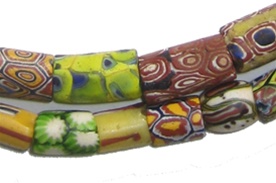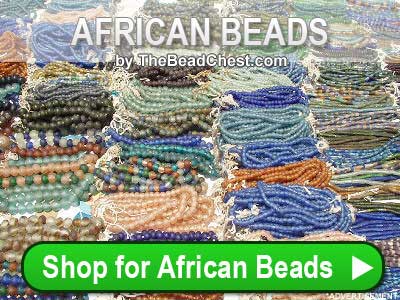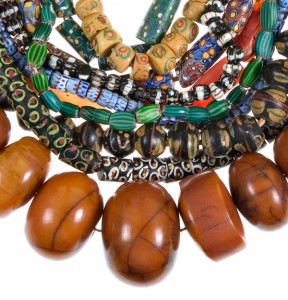Persuasive marketing encouraging ‘responsible shopping’ is not a new concept. In fact, the tool has been used for years by charitable and welfare organizations, in a bid to highlight the impoverished conditions many African employees work in, as well as the appalling rates of pay, and even the environmental impact certain processes have upon global warming. No matter where you browse on-line, you cannot fail to have been presented with banner ad’s highlighting such issues. Most of them tend to go ignored.
Responsible Shopping and Africa
What does the ‘responsible shopping’ concept have to do with Africa? Plenty! In fact, you’d be surprised at how just a small minority of people conforming to alternative shopping habits could actually benefit the social, economical and health welfare of the impoverished citizens throughout Africa. Changing your bead shopping habits from a supplier who sources from the Far East, to a supplier who deals directly with African artisans, will put money into the economy, boost the market, and increase interest in the African retail sector. If the incentive of quality workmanship and unique works of art aren’t enough to convince, you could actually be saving a lot of money too!
Changing Your Bead Buying Habits
Whether you’re an impulsive collector, or a retailer yourself, changing the
manner by which you source your African beads will have a direct effect upon the regional African wholesaler that retails them. Such wholesalers are usually employers of many hundreds of bead artisans, all of whom have chosen this particular industry because they are trying to make a better life for themselves. Such wholesalers/ employers tend to be organizations intent on improving the conditions for such people, as well as maintaining a consistent wage for them. Think about it. If you, and ten other people around the world changed your buying habits per day, the African economy would see a considerable boost. It is the organizations within Africa who are trying to get this message across.
Doing Your Research
Part and parcel of becoming a responsible and socially conscious on-line shopper, is an understanding of the source-to-shopper, or supply chain. That is, where your beads come from, who made them, who sells them on, and who benefits from the profits. The really responsible will always ensure there are no ‘middle-men’ when buying their beads. But how do you find out?
The simplest way is to ask. Most online retailers of African trade beads are proud to conform to ethically responsible trading, supporting the regional economies of Africa by sourcing products direct from the producers, and will stipulate this wherever possible on their website. Unfortunately, many do not, so you have to inquire. If your retailer cannot, or refuses to name a specific area, organization or artisan group from which the beads are sourced, this should be enough to prevent you from buying from their site. How do you know the beads are authentic if you don’t know where they came from?
Giving Something Back
The real thrill of responsible shopping, is in the knowing you are giving something back (in terms of sustained and continued support) to a group of individuals, be it within Ghana, Ethiopia or Nigeria, who are actively seeking to improve their conditions, lifestyles and futures. Many consumers are quick to jump on the anti-charity bandwagon, claiming they cannot see where their money is being used, or that they don’t feel it is ‘deserved’ by people less fortunate. By shopping for trade beads responsibly, you are actually helping those who either see bead craft as their last hope, or who want to make a fulfilling and life affirming career from this art.
Big name organizations such as Fashion Fights Poverty, and Beads of Awareness are already increasing the international retail opportunities for the Krobo village tribespeople, along with some of the Ashante living within Kumasi. Both tribes are renowned for their recycled bead production, but also with the production of stunning tribal jewelry, that is now being showcased upon catwalks around the world with Gucci, Prada and Valentino! You too can support such change, by simply adopting a new shopping attitude. Feel good for knowing you’re giving something back!


 African beads, trade beads, and antique beads have been enjoyed by many for centuries. African beads are treasured for their history. Many have traveled over 3 continents and can be up to centuries old. This blog is devoted to providing you with accurate information on African beads, trade beads, and antique beads. We hope you enjoy our blog!
African beads, trade beads, and antique beads have been enjoyed by many for centuries. African beads are treasured for their history. Many have traveled over 3 continents and can be up to centuries old. This blog is devoted to providing you with accurate information on African beads, trade beads, and antique beads. We hope you enjoy our blog!